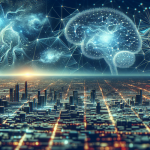
AI in Mental Health: Transforming Therapy with Technology
AI in Mental Health: Transforming Therapy with Technology
The integration of artificial intelligence (AI) in various fields has progressed at an unprecedented pace, and mental health is no exception. From diagnostics to personalized treatment, AI is set to redefine the therapeutic landscape. In this article, we explore how technology is making significant strides in enhancing mental health care.
The Role of AI in Diagnostics
Accurate diagnosis is crucial in therapy. Traditionally, mental health disorders have been diagnosed through subjective assessments. However, AI-powered algorithms can analyze vast data sets to identify patterns, thus aiding clinicians in making more precise diagnoses.
- Data-Driven Insights: AI models analyze data from various sources, such as medical histories, cognitive assessments, and behavioral patterns, providing insights that are less prone to human error.
- Predictive Analytics: AI can predict mental health crises based on user data, enabling proactivity in treatment.
- Enhanced Screening Tools: Tools like AI in climate action can be repurposed to screen for symptoms of mental health issues, offering immediate feedback and recommendations.
Personalizing Treatment Plans
Each individual’s mental health journey is unique, and AI plays a critical role in personalizing treatment:
- Tailored Therapies: AI algorithms can help devise tailored therapeutic approaches that resonate with individual patient profiles.
- Continuous Learning: AI systems can learn from ongoing patient data, ensuring that treatment plans are adjusted to reflect the patient’s progress.
- Accessibility: AI applications enable remote therapy options, breaking geographical barriers to access mental health care.
Improving Access to Care
With a growing global demand for mental health professionals, AI technologies are stepping in to bridge the gap:
- Chatbots and Virtual Therapists: AI-driven chatbots can provide immediate support and guidance, offering a non-judgmental platform for individuals to express their concerns.
- 24/7 Availability: Unlike traditional therapists, AI can provide round-the-clock support, ensuring help is available when needed the most.
- Cost-Effectiveness: AI tools can potentially lower the costs associated with therapy, making it more affordable for a broader audience.
Challenges Ahead
Despite its potential, the integration of AI in mental health faces challenges:
- Ethical Concerns: The use of AI in sensitive areas raises questions about privacy, consent, and the potential for misuse of data.
- Human Touch: While AI can provide valuable insights, the importance of human empathy in therapeutic relationships cannot be overstated.
- Regulatory Hurdles: The medical field is highly regulated, and new AI solutions will need to navigate these complexities before implementation.
Conclusion
AI is on the cusp of transforming mental health therapy, offering innovative ways to diagnose and treat various disorders. While it brings forth significant advantages, it must complement, not replace, the human touch that is vital for effective therapy. As we continue to explore the boundaries of technology, the future holds promising potential for enhanced mental health care.
For further reading on the intersection of AI and healthcare, check out our article on AI’s Role in Climate Change Solutions.













